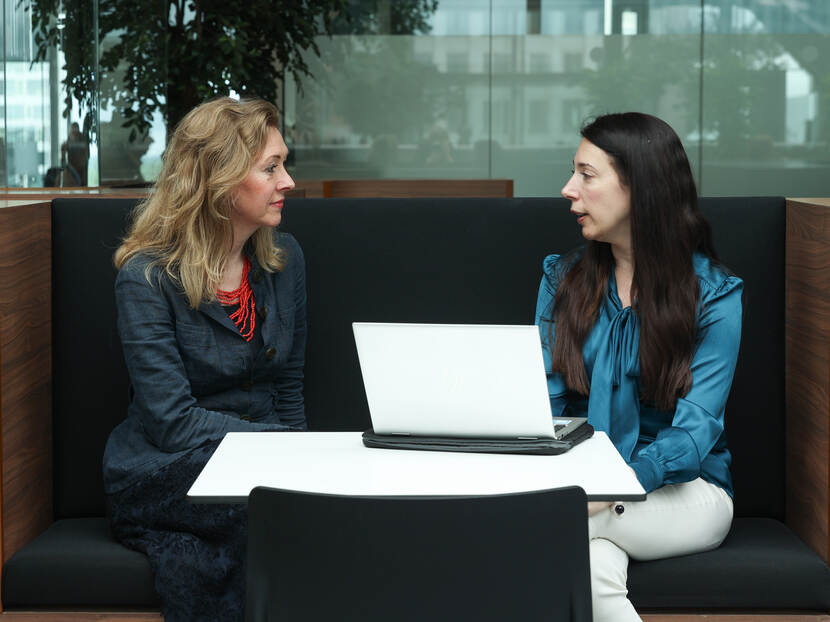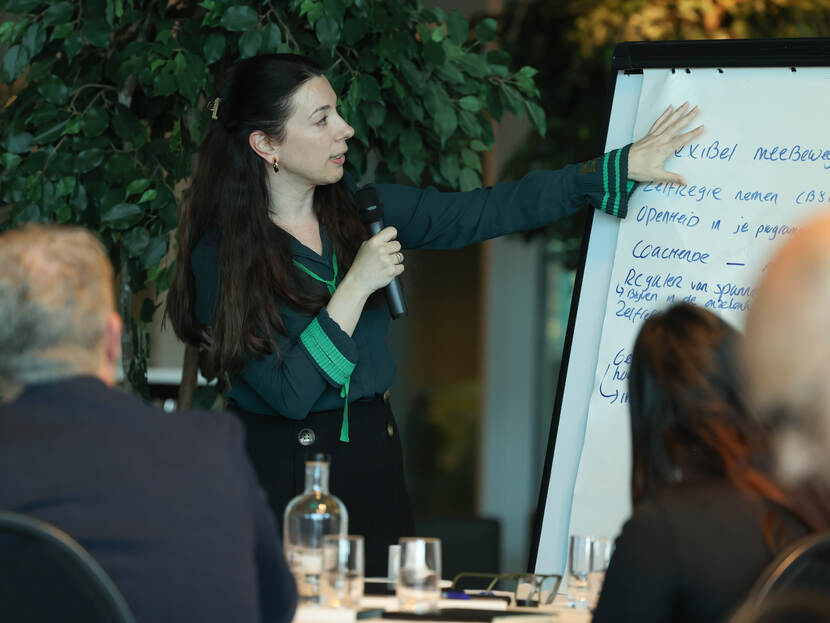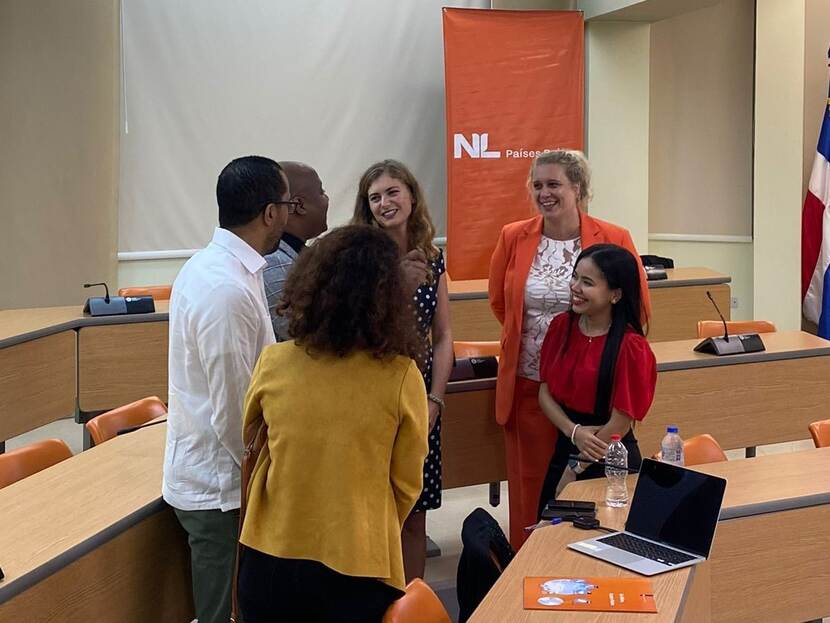Language+ roles at BZ: start small, think big
Besides proficiency in foreign languages such as French, German, Spanish, Russian, Arabic and Chinese, knowledge of the culture is crucial for BZ staff to be able to work effectively during their posting abroad. So, to prepare staff as well as possible to work anywhere in the world, the Academy launched a pilot for Language+ roles in 2024.

Language pilot project
The Academy’s language pilot project is an example of starting small while thinking big. It aims to give staff the scope and clarity to prepare as effectively as possible for their new role abroad. ‘It’s working well,’ says learning adviser Natasja Nikolić. ‘We can tell from the positive responses we’ve been getting from the pilot’s first participants.’
Language+ roles
‘At BZ, policy is always the starting point. But in the language pilot, we do it the other way around. Together with the HR advisers and the Recruitment & Selection Group, we selected a limited number of roles at missions abroad for the pilot. We consulted the regional departments to identify jobs where foreign language proficiency and knowledge of the local culture and region is absolutely essential. We then gave these jobs a Language+ label. These jobs are an integral part of the language pilot, which is aimed at creating a comprehensive language policy that will ensure staff’s language proficiency is sufficient for their work for BZ,’ Natasja explains.

How it works
There are Language+ roles at all missions worldwide, and all BZ staff can apply regardless of their existing language level. Preparing for a Language+ job means taking courses to achieve the required level of language proficiency and knowledge of the local culture and region. This can be quite intensive. The language aspect of the job is discussed in detail during the job interviews. As soon as a staff member is appointed to a Language+ role, the Academy contacts them and arranges a language test. Based on the results, an individual training programme is compiled. This is done jointly with the mission, the regional department, the Academy and the staff member concerned. The programme will give the staff member the necessary language skills and confidence to get off to a good start in their new role.
The pilot in 2024
A total of 13 staff took part in the language pilot in 2024. They are enthusiastic and feel better prepared for their new job. ‘The personal and structured approach is helpful,’ Natasja says. ‘Colleagues like discussing the options and opportunities for personal development. The training programme gives clarity and certainty that they’re spending their time efficiently. And that gives us a team energy, too.’
Leonne van Vlimmeren was appointed deputy head of mission in Santo Domingo in 2024. ‘To work effectively as a diplomat in the Dominican Republic, it’s vital to have an excellent command of Spanish,’ she says. ‘The intensive preparatory training in language and culture helped me make a good start in my new role. The pilot opened up a region that was new to me and now I’m much more widely deployable for BZ. Any colleagues who are interested in the pilot and would like to talk with me about my experiences are most welcome to get in touch. I heartily recommend the language pilot!’

Time and space
‘At the start of the language pilot we wondered how much time staff members and their managers would be willing to set aside for language and culture training courses. We noticed that the pilot helped staff make good arrangements about this, so the individual training plan has proven its worth. Managers and staff recognise its value for the organisation.’
Optimalisation
‘It’s a pilot project, so that means we’re still improving and fine-tuning the approach with each new staff transfer round. We tackle any snags that arise immediately, clarifying and fleshing out the process. In 2025, eight staff members will be taking part in the language pilot. In the meantime, we’re staying in touch with the 2024 participants until six months after their posting, and working on improvements. After all, you can only make a good first impression once. With a good knowledge of the local language and culture, you can make a difference, open doors and build relationships. It’s key to making a good start in a new posting abroad.’